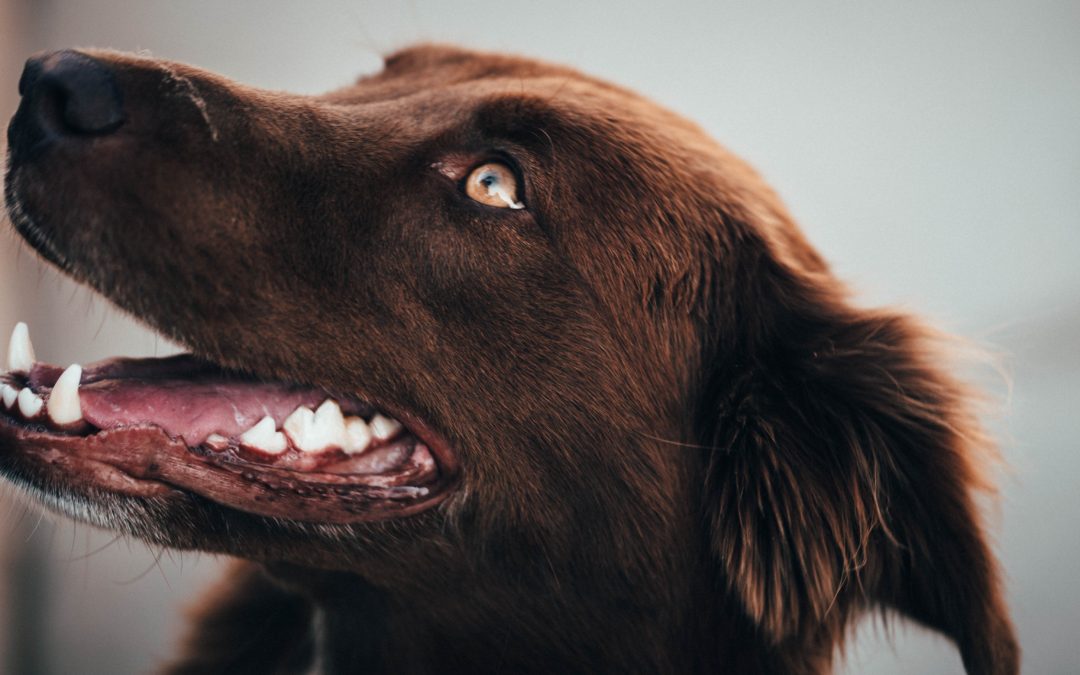Have you ever been snuggling with your dog on the couch, and they open their mouth near your face, and you have been met with this horrible smell? After this, you may have looked in their mouth to see what is causing the smell and found terrible dental disease or some mass in their mouth. Your next step should be to make an appointment with your veterinarian to figure out how to fix this problem.
There are many signs that you may notice that would indicate that your dog has dental problems. These signs are:
- Bad breath
- Drooling
- Problems eating
- Dropping food when eating
- Blood coming from the mouth
- Pain when chewing
Some dogs can have masses grow in their mouth, or extra gum tissue develops. This can also cause some of these symptoms, as well as pain in your dog’s mouth. If you see a growth in your dog’s mouth, schedule an appointment with your veterinarian to see what is going on in your dog’s mouth.
What is involved with dental cleaning at my veterinary office?
If your dog has severe dental disease and a lot of tartar on their teeth, you will need to have them professionally cleaned. Your veterinarian will use the same instruments that your dentist uses to clean and polish your dog’s teeth.
Your dog will have to be lightly sedated to allow your veterinarian to clean their teeth. No dog is going to lay still enough for your veterinarian to be able to clean your dog’s teeth while they are asleep.
Dental Radiographs
Depending on where they go for their dental cleaning, the cleaning may include x rays of the mouth to make sure all the teeth are healthy and that there is nothing abnormal going on below the gum line that cannot be seen. If your veterinarian finds a problem with the x-rays, they can remove the affected teeth.
After Dental Cleanings
After your dog’s teeth are cleaned, there are many things that you can do to help keep their breath fresh.
- Dental Chews: You can offer daily dental chews. This helps decrease the amount of plaque buildup on your dog’s teeth. When you first give your dog a new chew, monitor them, and make sure that they cannot swallow the chews whole or can chew them up very quickly. When your dog’s chew gets so small that the entire chew will fit into their mouths, take the chew away and give them another one. This will prevent them from choking on the chews
- Water Additives: You can put additives in their water. There are drops that you can add to your pet’s water to help make their breath fresh. Some dogs do not like the taste of these and will refuse to drink the water. Make sure that you are offering your pet water with no additives until you know that they will drink the water.
- Brushing Teeth: You can brush your dog’s teeth every day. While most people do not have time to brush their teeth every day, cleaning them a few times a week is better than nothing. You can purchase dog toothbrushes and dog toothpaste at your local pet store. If you started young, this is something most dogs get very used to.
Why does my dog need a dental cleaning?
Dental disease can be painful for your dog. By keeping your dog teeth clean and healthy, you are decreasing the number of bacteria that are trapped around the gums. These bacteria can also cause problems in the body. Poor dental hygiene has been linked to problems with the kidneys, lungs, liver, and heart.
Most large dogs will only need a few dental cleanings in their lifetime. Smaller dogs will require their teeth to clean much more frequently. Some small dogs need their teeth cleaned every 6 months, while some dogs can go a few years in between their cleanings.
By maintaining good dental hygiene and keeping your pet’s breath fresh, your dog will have a better quality of life. If you notice any problems in your dog’s mouth, make an appointment with your veterinarian to determine what is causing this problem and what can be done to help your dog.


Recent Comments